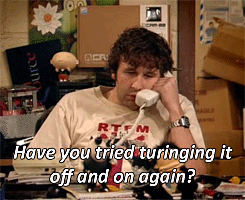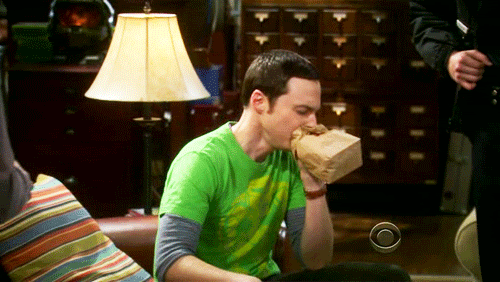This is one of those posts that can only ever be accurate to my experience. There’s no ‘right’ or ‘wrong’ way to experience anxiety, just a combination of symptoms that affect particular people. I find my experiences of anxiety fit into some smaller sub-types that I’ve defined for myself, and by defining those types, I’m better able to treat myself when I need to.
Anxiety is often mis-understood as a psychological illness with purely psychological effects. This is very rarely the case. Anxiety starts in the brain, but the physical effects that result can be debilitating.
So here goes. My anxiety and panic sub-types, as defined by me.
PANIC DISORDER
For some, the terms ‘panic’ and ‘anxiety’ are interchangeable. I don’t feel they are, but those are just the words I use to label how I feel. I have been formally diagnosed with panic disorder, and to be honest, these days–it’s the easiest of all to manage.
Panic disorder, for me, is the sudden, crippling, struck-by-lightning, acid-down-your-back, stomach-through-your-toes, overwhelming sense of sheer terror that grips me out of the blue.
The weird thing about it, is usually I don’t realise I’m anxious prior to the attack occurring. I’ll be fine one moment, and then bang–it hits.
After the initial terror shock, my heart rate sky rockets. I breathe fast, I feel nauseous. I very rarely have the ability in these moments to think straight, my thoughts are in a blender on the fastest speed. Everything is fragmented.
The more it goes on, the more symptoms join the party. My head feels like lead, my legs are made of incredibly heavy jelly–but the middle of me doesn’t feel like it’s there at all. I might vomit. Colours become brighter, white becomes unbearably incandescent and black looks like a void I’m about to be sucked into. Eventually my vision clouds over.
My body is utterly out of control, and still spiralling. So it does that one thing computer techs around the world wearily ask:

That’s right, an unexpected reboot!
Fainting is the body’s way of taking human thoughts out of the equation, and restarting with enough basic functions to get the terror under control. Before… you know. I have a heart attack or something.
Problem is, it’s also absolutely fucking terrifying.
So, how do I avoid getting to that drastic point?
It’s actually simpler (and still harder) than it sounds.
I don’t fight it anymore.
When that bolt of terror hits, my initial instinct was to forcibly regain control of my body. I would fight to get my heart rate down, I would fight to stay standing, and I would fight the urge to vomit. More to the point, I was creating additional stress by trying to stop these things from happening. I was afraid of what would happen if I let the panic attack continue, so I did my absolute damnedest not to let it continue.
Rookie. Error.
It’s far easier said than done, but once you accept that it’s happening–it starts going away. It doesn’t hold power over you. The minute you realise that this attack isn’t putting your body in danger, there’s no need to fight it. The sickening thunderstruck sense is usually only a spark that needs more fear to grow, and that fear comes from fearing the symptoms of your own anxiety.
Panic attacks in this sense don’t last long for me anymore. Thirty seconds to a minute, long enough for that initial bolt to wash away. These aren’t generally caused by any identifiable trigger, which is what makes them different to anxiety attacks.
When I first started practicing this technique, I started by identifying the sequence of symptoms in the usual order they would occur, and how I could minimise any damage caused by them. Note that I did once split my chin open and break two teeth in a fainting episode!
So getting on the floor is crucial. When that bolt hits, I quietly and calmly lower myself to the floor and lie in recovery position. Then I just–let it do what it will until it’s gone. Every time I do this, I reinforce the understanding that these attacks can’t hurt me, and the next one is easier again.
An anxiety attack? Well. That’s another thing altogether.
ACCCUTE ANXIETY
On the surface, ‘accute anxiety’ or an ‘anxiety attack’ looks much the same as a panic attack. It hits fast, hard, and if it spirals out of my control you can bet I’ll end up on the floor.
The primary difference in my definitions of panic and anxiety attacks, is what causes them. An anxiety attack usually occurs in response to something. An unkind word from someone else, making a dumb mistake, being surrounded by too many people, or just the insane amount of reflective surfaces in Target.
Just as a panic attack will feed on the fear of the attack itself, anxiety attacks also need fuel to keep going. Problem is, there’s plenty of that! And it’s fuel that is a lot harder to dismiss, especially if I’ve done something spectacularly dumb.
Feelings of being stupid, inadequate, incompetent, isolated, crazy, weird, and other horrible thoughts about myself are usually circling about in that blender-like brain feeding the fire.
Of course I’m hyperventilating, curled up in a corner, having a breakdown because I am a completely useless piece of shit.
And other charming things to say to yourself in crisis.
These can often feed into meltdowns, which just makes for a splendid day.
Symptoms include, but are not limited to: fast breathing, elevated heart rate, tight chest, crying, nausea/vomiting, diarrhea (fuckin’ yaaay, right?), tremors, inability to speak, cold sweats, clouded vision, heavy limbs, and a critical reduction in my ability to function as a human.
But here’s something else fun about anxiety attacks:
I can be having one right in front of you, and you would never know.
The other major difference between panic attacks and anxiety attacks, is I have greater ability to mask my symptoms in an anxiety attack. They aren’t less intense, and I am deeply suffering under all that make-believe, but sometimes it’s enough to look like you’re coping until you can get somewhere and break down. Which… I think is the life goal of most autistic people too.
Basically, if I’m having a visible panic attack, the shit has really hit the fan. I do not ever, EVER like people to see me this way. If it’s visible, it’s beyond my ability to control, and that is a pretty bloody bad day for me.
But–how to deal with it?
If I’m in an attack, it’s too late for prevention. We’re in damage control.
If I’m in public, my first step is to excuse myself to a quiet place where I can let go a little. Hiding an anxiety attack is exhausting. I need to get down to the ground, at least into a sitting position. I do find lying down to be the most effective calming position, though.
The darker and quieter a place, the better. Otherwise if I have my phone and earphones, some gentle music with my eyes shut. I can ‘disappear’ into music until my rhythms return to normal.
The horrible thoughts that fuel the attack will continue until I’ve soothed myself a little, and get the energy back to fight them. I almost always don’t want to talk about it during, or immediately after, the occurrence. It takes me hours, sometimes days, to process what happened and how I feel about it.
Often I’ll feel like a failure for not being strong enough to stand it.
The trick with these ones is to be able to stop the flow of negative thoughts. Stop feeding the fire, and it won’t burn–same as panic attacks. Just a lot harder to put into practice.
PROLONGED ANXIETY
This is above and beyond the most dangerous, insidious form of anxiety I know. This isn’t the intense anxiety you know is happening to you, it isn’t the whirling stream of terrible thoughts that make you sick.
It’s the days of feeling gross, on edge, grinding your teeth in your sleep, with an unsettled stomach and no explanation why. It’s similar to that feeling you get in the lead up to a big horrible event, only there’s no end in sight.
It grows so slowly it feels normal. Like depression, it takes over your life until you can’t remember what a proper resting heart rate feels like. You don’t know when the last time was that you ate food and didn’t feel sick. You’re not sure how long it’s been since you had a night where you were able to sleep, and not oversleep. It’s wearing you out and every day you feel more tired and you don’t know why.
You don’t feel like you can breathe properly, but what is properly? The longer it goes on, the deeper you sink into it, the more the symptoms grow. You’re on a hair trigger, will you scream, cry, or murder someone? Small things are irritating when they shouldn’t be. You’re restless, hungry for a taste that only exists in your imagination, and at the same time paralysed. You can’t… you just can’t, everything is too hard for some reason.
When did this start getting bad? Why? What has happened? It doesn’t seem like there should be any reason for it, and by the time you realise–you’re drowning. Lulled into a false normal bit by bit. When was the last time you didn’t have a headache? What is the deal with all this farting??
Your body isn’t as it should be, you’re not relaxed even when you’re asleep. Tension builds on tension, until eventually it explodes in an anxiety attack. And boy oh boy are they worse when they’ve been brewing like this!
So—what do?
Practice extreme self care! I don’t know if there’s any better excuse for having your favourite things on hand.
For me, that means scented candles (jasmine, frangipani, and gardenia!), a good quality blend of tea, some favourite shower gels (peppermint, and neroli jasmine… not at the same time, obviously!), comfortable snuggly clothing, and other items of general comfort.
At work I find having something to fidget with releases a lot of that tension in a less explosive way. Fortunately my new work sells electrical components like switches and buttons and wires, so I’m always able to find something to carry around and fiddle with. My favourite so far has been about three inches of double-insulated six-core copper wire. It was so bendy and fun!
Music, movies, games, all of those things that I can ‘escape’ into until my body calms down are also incredibly useful. As is the company of friends and family, both virtual and in meat space! Blogging has also become a source of self-care, and a critical part of processing and understanding how my brain functions. I learn a lot about myself writing these, as it forces me to think about things in a different way than I do when the thoughts are swirling uncontrolled.
The other really important thing? Celebrate. Genuinely celebrate your wins, however small. Whether that’s climbing a mountain, or brushing your hair. If it’s a success for you, celebrate it. We get far too caught up in our losses at times, but if you remember to celebrate the wins, they’ll help balance out the bad when you need them.
And take note of what your body is doing, and where you end up. You may not pick up the slide into prolonged anxiety this time, or even next time. But, if you begin now, you’ll start noticing the patterns and each time you’ll be better placed to rescue yourself sooner.
How do you cope with your anxiety? What do you experience?
I would love to know! The more strategies, the better!
